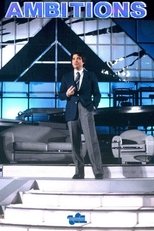
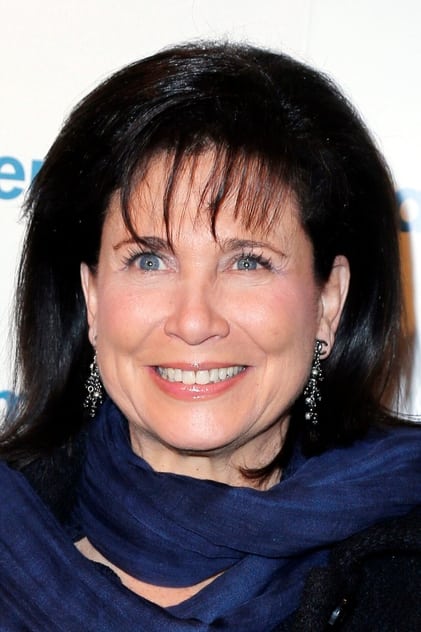
Anne Sinclair
Born: July 15, 1948
in New York City, New York, New York, USA
in New York City, New York, New York, USA
Anne Sinclair (born Anne-Élise Schwartz; 15 July 1948) is a French-American television and radio interviewer. She hosted one of the most popular political shows for more than thirteen years on TF1, the largest European private TV channel. She is heiress to much of the fortune of her maternal grandfather, art dealer Paul Rosenberg. She covered the 2008 US presidential campaign for the French Sunday newspaper Le Journal du Dimanche and the French TV channel Canal+. She married French politician Dominique Strauss-Kahn in 1991 and divorced him in 2013 in the aftermath of the New York v. Strauss-Kahn case. She was portrayed in the 2014 feature film Welcome to New York.
Anne-Elise Schwartz was born 15 July 1948 in New York City to Joseph-Robert Schwartz (changed to Sinclair in 1949) and Micheline Nanette Rosenberg. Via her mother she is the maternal granddaughter of Paul Rosenberg, one of France's and later New York's biggest art dealers. Both of her parents were French-born Jews who had married pre-war, and who with Paul Rosenberg and his wife had fled from the Nazi persecution of Jews after the 1940 Nazi invasion of France.
A few years after her birth, the family returned to France. She attended the Cours Hattemer, a private school. She majored in politics at Sciences Po and in law at the University of Paris.
Sinclair's first radio hosting job was at Europe 1, one of the leading nationwide radio networks.
Between 1984 and 1997 she hosted 7/7, a weekly Sunday evening news and political show on TF1 that had one of the largest audiences in France. She became one of the country's best known journalists and conducted more than five hundred interviews over the course of the show's thirteen-year run.
Every Sunday at 7 pm Sinclair hosted a one-hour interview with a leading French or international personality. She interviewed French presidents François Mitterrand and Nicolas Sarkozy as well as US president Bill Clinton, Mikhail Gorbachev, Shimon Peres, Felipe González, German chancellors Helmut Kohl and Gerhard Schröder, King Hassan II of Morocco, Hillary Clinton, the UN Secretary General in New York during the first gulf war, and Prince Charles.
Although primarily focused on politics, her show also included celebrities Madonna, Sharon Stone, Paul McCartney, Woody Allen, and George Soros. She conducted interviews with French cultural figures such as Johnny Hallyday, Alain Delon, Yves Montand, Simone Signoret, Bernard-Henri Lévy, and Elie Wiesel.
Sinclair won three Sept d'Ors, the French equivalent of the Emmy Awards.
In 1997 she chose to leave the show to avoid conflict of interest when her husband Dominique Strauss-Kahn became French finance minister. She then created an Internet subsidiary company for her former employer TF1 and ran it for four years before returning to journalism. In 2003 she launched a cultural radio programme called Libre Cours (Free Rein) on France Inter, the French equivalent of NPR.
She also wrote bestsellers on politics: Deux ou trois choses que je sais d'eux (Grasset, 1997) and Caméra Subjective (Grasset, 2003). ...
Source: Article "Anne Sinclair" from Wikipedia in English, licensed under CC-BY-SA 3.0.
Anne-Elise Schwartz was born 15 July 1948 in New York City to Joseph-Robert Schwartz (changed to Sinclair in 1949) and Micheline Nanette Rosenberg. Via her mother she is the maternal granddaughter of Paul Rosenberg, one of France's and later New York's biggest art dealers. Both of her parents were French-born Jews who had married pre-war, and who with Paul Rosenberg and his wife had fled from the Nazi persecution of Jews after the 1940 Nazi invasion of France.
A few years after her birth, the family returned to France. She attended the Cours Hattemer, a private school. She majored in politics at Sciences Po and in law at the University of Paris.
Sinclair's first radio hosting job was at Europe 1, one of the leading nationwide radio networks.
Between 1984 and 1997 she hosted 7/7, a weekly Sunday evening news and political show on TF1 that had one of the largest audiences in France. She became one of the country's best known journalists and conducted more than five hundred interviews over the course of the show's thirteen-year run.
Every Sunday at 7 pm Sinclair hosted a one-hour interview with a leading French or international personality. She interviewed French presidents François Mitterrand and Nicolas Sarkozy as well as US president Bill Clinton, Mikhail Gorbachev, Shimon Peres, Felipe González, German chancellors Helmut Kohl and Gerhard Schröder, King Hassan II of Morocco, Hillary Clinton, the UN Secretary General in New York during the first gulf war, and Prince Charles.
Although primarily focused on politics, her show also included celebrities Madonna, Sharon Stone, Paul McCartney, Woody Allen, and George Soros. She conducted interviews with French cultural figures such as Johnny Hallyday, Alain Delon, Yves Montand, Simone Signoret, Bernard-Henri Lévy, and Elie Wiesel.
Sinclair won three Sept d'Ors, the French equivalent of the Emmy Awards.
In 1997 she chose to leave the show to avoid conflict of interest when her husband Dominique Strauss-Kahn became French finance minister. She then created an Internet subsidiary company for her former employer TF1 and ran it for four years before returning to journalism. In 2003 she launched a cultural radio programme called Libre Cours (Free Rein) on France Inter, the French equivalent of NPR.
She also wrote bestsellers on politics: Deux ou trois choses que je sais d'eux (Grasset, 1997) and Caméra Subjective (Grasset, 2003). ...
Source: Article "Anne Sinclair" from Wikipedia in English, licensed under CC-BY-SA 3.0.
Movies for Anne Sinclair...


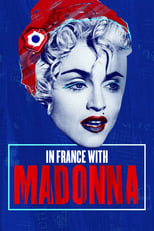
Title: In France with Madonna
Character: Self (archive footage)
Released: October 17, 2022
Type: Movie
France is at the heart of Madonna's life. She is inspired by French culture and its values and has surrounded herself with French artists for many years. To celebrate the 40th anniversary of the Queen of Pop's career, this film revisits the close and unique bond between Madonna and France and features testimonials from close collaborators and French friends who have helped create her unique artistic universe: Maripol, Jean Paul Gaultier, Julien d'Ys, Nicolas Huchard, and Marion Motin. Today's artists such as Florence Foresti, Leïla Slimani, Victor Weinsanto and HollySiz talk about the influence of this emancipating figure, which extends far beyond music.



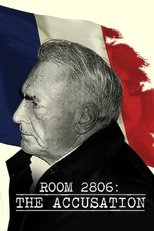
Title: Room 2806: The Accusation
Character: Self (archive footage)
Released: December 7, 2020
Type: TV
This docuseries follows the 2011 sexual assault case involving French politician Dominique Strauss-Kahn

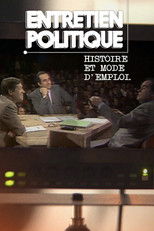
Title: Entretien politique : Histoire et mode d'emploi
Character: Self (archive footage)
Released: July 13, 2020
Type: Movie

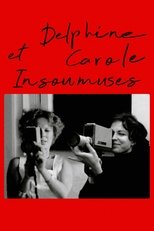
Title: Delphine and Carole
Character: Self (archive footage)
Released: January 14, 2020
Type: Movie
In the 70s, actress Delphine Seyrig and director Carole Roussopoulos, both militant feminists, were the pioneers of video activism in France. They documented the demonstrations of French feminists and used the new technologies to counter the poor representation of women in the public media.

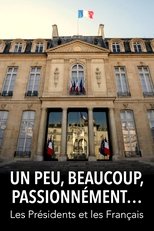
Title: Un peu, beaucoup, passionnément... Les Présidents et les Français
Character: Self
Released: October 2, 2019
Type: Movie

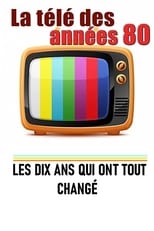
Title: La télé des années 80 - Les 10 ans qui ont tout changé
Character: Self
Released: January 19, 2018
Type: Movie

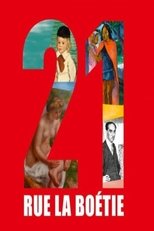
Title: 21 rue la Boétie
Character: Narrator (voice)
Released: March 12, 2017
Type: Movie

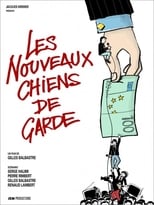
Title: The New Watchdogs
Character: Self
Released: January 11, 2012
Type: Movie
In 1932, the writer Paul Nizan published "The New Watchdogs" to denounce the philosophers and writers of his time who, sheltering behind intellectual neutrality, imposed themselves as true watchdogs of the established order. Today the watchdogs are journalists, editors, and media experts who've openly become market evangelists and guardians of the social order. In a sardonic manner, "The New Watchdogs" denounces this press that, claiming to be independent, objective and pluralist, makes out it is a democratic force of opposition. With forcefulness and precision, the film puts its finger on the increasing danger of information produced by the major industrial groups of the Paris Stock Exchange and perverted into merchandise.

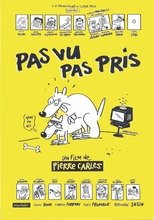
Title: Pas vu, pas pris
Character: Self
Released: November 18, 1998
Type: Movie
"Pas vu, pas pris" starts with a subject filmed 2 years ago ; ordered then forbidden to broadcasting by Canal + : it was "Pas vu à la télé". Bernard Benyamin, Henri de Virieux, Patrick de Carolis, Anne Sinclair, Charles Villeneuve (amongst others) appear before the candid camera of Pierre Carles, for once subjected to an investigation that concerns their profession. After proclaiming that there is no taboo subject on television, they discover a pirate document showing Étienne Moujeotte and François Léotard in a business discussion about the destinies of TF1. Question asked : would they have agreed to broadcast this document and if not, why not ? The investigation itself is objectively searching : anything can be said on TV except one thing, the more or less close collusion of journalists and the political powers. Pierre Carles gives us a sharp reflection on the scope of this "fourth power" that the media have become, and on the compromises of those who are its masters.



